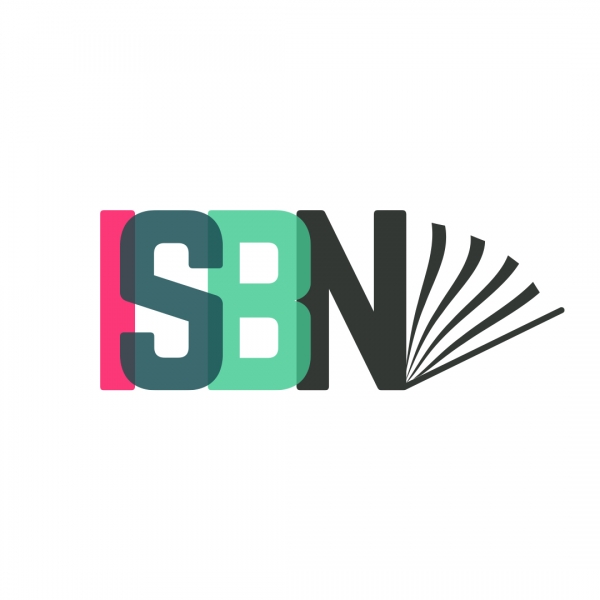Writing a book is a bit like assembling IKEA furniture without the manual—you’re full of inspiration, maybe a few screws short, and occasionally questioning your life choices. But here’s the truth: even the best manuscripts need a second pair of eyes (preferably ones that won’t overlook your accidental “their/there/they’re” slip-ups).
A professional editor doesn’t just correct your grammar—they help your book become the best version of itself. Whether you’re self-publishing or aiming for a traditional deal, finding the right editor is a crucial step on your publishing journey. And if you’re already at the editing stage, you might find this guide to polishing your manuscript especially helpful.
In this guide, we’ll walk you through how to find an editor for your book, what kind of editor you actually need (yes, there’s more than one kind), and how to work with them effectively—without losing your sanity or your voice. Let’s get started!
Why You Need a Book Editor
We get it—after months (or years) of writing, the last thing you want is someone poking at your precious words. But here’s the hard truth: even the greatest authors don’t go it alone. Editors are the unsung heroes behind every polished page, and hiring one might be the smartest move you make as an author.
So… what exactly does an editor do?
- Spot inconsistencies you’ve read over a hundred times (yes, your main character did mysteriously switch eye colors mid-book).
- Fix grammar, punctuation, and sentence flow, making your writing smoother and more readable.
- Highlight confusing or weak sections, ensuring your message is clear and engaging from start to finish.
- Strengthen your voice rather than replace it—good editors refine, not rewrite.
What happens if you skip editing?
Well, imagine buying a brand-new car that looks amazing… but no one checked the engine. Unedited books often fall flat due to avoidable issues: awkward phrasing, typos, and plot holes that turn readers (and reviewers) away fast. It can damage your credibility and reduce your chances of building a loyal audience—especially if you’re self-publishing.
Whether you’re writing fiction, nonfiction, memoirs, or children’s books, a professional editor helps you bridge the gap between a good draft and a great, publish-ready book.
Types of Book Editors (and Which One You Need)
Not all editors wear the same hat—some dive deep into your story structure, while others swoop in with a red pen to clean up grammar and typos. Many authors confuse copy editing and proofreading, but each plays a distinct role in preparing your book for publication.Understanding the different types of editors will help you avoid overpaying—or under-editing.
1. Developmental Editor
Think of this as your book’s architect. A developmental editor looks at the big picture—plot structure, pacing, character development, tone, and logical flow.
Best for: Early drafts, major rewrites, or if you’re unsure whether your story makes sense.
Pro tip: If you hear, “this character disappears for five chapters,” thank them. They’re saving your book.
2. Line Editor
Line editing focuses on how your book reads line by line. This editor sharpens sentence structure, rhythm, word choice, and flow—without changing your voice.
Best for: Manuscripts that are structurally solid but need polish.
Pro tip: Line editing can feel personal—it’s where your “style” lives—but trust the process. It’s about enhancing your voice, not replacing it.
3. Copy Editor
The grammar ninja. Copy editors catch spelling mistakes, punctuation problems, verb tense issues, and factual errors.
Best for: Final stages before formatting and publishing.
Pro tip: If your editor corrects “it’s” to “its” 37 times, they’re doing their job.
4. Proofreader
Your last line of defense. Proofreaders go through the final version to catch sneaky typos or formatting issues missed earlier.
Best for: Final, formatted manuscripts before print or digital publishing.
Pro tip: Proofreading is not a replacement for editing—it’s the cherry on top, not the cake.
Knowing which type of editor you need (and when) can save you time, money, and frustration.
Editors for Self-Published Authors: Where to Find Book Editors?
So you’ve decided you need an editor—great choice! But where do you actually find one? Contrary to popular belief, they don’t live in secluded cabins surrounded by red pens and coffee mugs (though some might). There are plenty of accessible, reputable places to connect with professional editors—both freelance and agency-based.
Freelance Marketplaces
Platforms like Reedsy, Upwork, and Fiverr Pro host vetted editors with portfolios, client reviews, and pricing info.
- Reedsy is specifically designed for authors, so you’ll find experienced editors who’ve worked with traditional and indie publishers.
- Upwork and Fiverr offer more flexibility in pricing but require a bit more vetting.
Pro Tip: Always ask for a sample edit before committing. It’s like a test drive—except you’re handing them your manuscript, not your keys.
Editing Agencies & Services
Companies like Editage and Kirkus Editorial provide structured packages with guaranteed timelines and professional standards.
- Ideal if you want a more “hands-off” process with built-in quality control.
- Often more expensive, but you’re paying for reliability and editorial oversight.
Writing Communities & Author Groups
Facebook groups, Reddit threads like r/selfpublish, or writing forums (e.g., Absolute Write, Scribophile) are great places to find peer-recommended editors.
- Bonus: You can often see examples of an editor’s work from others in the group.
LinkedIn and Professional Associations
Searching LinkedIn for editors or exploring directories like the Editorial Freelancers Association (EFA) or ACES (The Society for Editing) can lead to experienced professionals.
- These editors often have specialized niches (e.g., fantasy, memoir, business books).
- Great for building long-term relationships if you plan to write multiple books.
How to Vet and Choose the Right Editor
Not all editors are created equal—and just because someone says they’re an editor doesn’t mean they should touch your manuscript. This is your book, your voice, your baby. You want someone who will respect it and make it better. Here’s how to make sure you’re hiring the right person:
Review Their Portfolio and Experience
Ask for samples of books they’ve edited—ideally in your genre. Have they worked with debut authors? Traditionally published titles? Do those books look professional and well-reviewed?
Pro Tip: Look for editors who’ve worked on books similar in tone, structure, or audience to yours. Editing a gritty crime thriller is very different from editing a whimsical children’s book.
Request a Sample Edit
Many editors will edit 1–2 pages for free or a small fee. This gives you a sneak peek at their editing style and whether it aligns with your expectations.
What to look for:
- Are their changes clear and helpful?
- Do they preserve your voice?
- Do they over-edit or under-edit?
Ask About Their Process
Do they work in Google Docs, Word Track Changes, or PDF annotations? Will they provide an editorial letter with feedback? How many rounds of edits are included?
Clarify:
- Timeline
- Communication style
- Revisions policy (what if you disagree with a change?)
- Payment terms (hourly, per word, flat fee)
Check References or Reviews
If you’re hiring through a platform, read their client reviews. If you’re hiring directly, don’t be shy—ask for references. Past authors can give insight into reliability, communication, and overall satisfaction.
Trust Your Gut
You’re going to be working closely with this person. If something feels off—rushed responses, vague pricing, overly critical tone—it probably is.
Hiring an editor is both a professional decision and a creative partnership. When you find someone who “gets” your writing and helps it shine? That’s gold.
Cost of Hiring a Book Editor
Let’s talk money—because editing isn’t cheap, and if it is, you should probably double-check what you’re actually getting. Editing is an investment in your book’s success, and knowing what to expect helps you plan ahead and avoid sticker shock.
How Much Does a Book Editor Cost?
The cost of editing depends on a few key factors:
- Type of editing (developmental editing usually costs more than proofreading)
- Length of your manuscript
- Editor’s experience and reputation
- Turnaround time (rush jobs cost more)
Here’s a general ballpark for rates (based on averages from the Editorial Freelancers Association):
| Type of Editing | Average Rate (per word) |
| Developmental Editing | $0.03–$0.08 |
| Line Editing | $0.02–$0.05 |
| Copy Editing | $0.01–$0.03 |
| Proofreading | $0.005–$0.015 |
Example: For an 80,000-word novel, developmental editing could cost anywhere from $2,400 to $6,400.
Ways to Save Without Sacrificing Quality
- Combine services: Some editors offer bundled packages at a reduced rate.
- Polish your manuscript first: The cleaner it is, the less time your editor will need—saving you money.
- Use beta readers before hiring an editor: They can catch big-picture issues early.
- Use AI tools (sparingly): Grammarly or ProWritingAid can catch basic grammar and spelling issues, but they’re no replacement for a human editor.
Pro Tip: Set aside 10–20% of your total book production budget for editing. It may be the difference between glowing 5-star reviews and “This book needed an editor” comments.
Working With an Editor: What to Expect
So you’ve hired an editor—congrats! Now comes the part where you hand over your manuscript, brace yourself emotionally, and prepare to see your precious pages marked up like a high school essay. But don’t worry—it’s all part of the process.
Here’s what working with an editor really looks like:
The Editorial Process (It’s a Team Effort)
Most editors will walk you through a process that typically includes:
- Initial review & assessment – A high-level read-through to spot any major issues.
- First round of edits – This could be developmental, line, or copy edits depending on what you hired them for.
- Your revisions – You review and apply (or reject) suggestions.
- Second pass (if included) – Some editors offer a second look after your revisions.
- Final proofing – For polishing and typo-hunting before you publish.
Communication Is Key
A good editor will ask questions and clarify your goals. Don’t be afraid to:
- Ask for explanations on changes
- Push back (respectfully) if something feels off
- Clarify anything you don’t understand
This is your book. A great editor collaborates—they don’t steamroll.
Expect Tough Love (But Not a Beatdown)
Yes, there will be feedback. Yes, some of it may sting. That’s normal. Editors aren’t here to flatter—they’re here to help you level up. The best ones are honest, constructive, and focused on improving your work, not tearing it down.
Pro tip: Let the feedback sit for a day before responding. Your future, cooler-headed self will thank you.
Be Open—But Stay True to Your Voice
Editors may suggest rewording, restructuring, or even removing entire sections. Consider everything thoughtfully—but remember: you’re the author. The final call is yours.
What Happens After Editing? How to Get Published
Once your manuscript is edited, polished, and proofed—what’s next? Time to launch it into the world. Here’s a quick look at your publishing options:
1. Self-Publishing
Self-publishing is the go-to route for many indie authors. You have full control over your book’s design, pricing, royalties, and distribution.
Here’s what you’ll need:
- Formatting: Turn your manuscript into a print-ready and/or ebook format (PDF, EPUB, MOBI).
- Cover design: Eye-catching book covers can make or break sales.
- Publishing platform: Upload your book to sites like Amazon KDP, IngramSpark, or Draft2Digital.
- Marketing: Build a launch plan, promote on social media, gather reviews, and run ads if possible.
2. Traditional Publishing
If you want to go the traditional route:
- Submit to agents or publishers with a polished manuscript and a query letter.
- If accepted, the publisher will handle editing, design, distribution, and marketing (though you’ll still do a lot of promo yourself).
- Expect a longer timeline and more gatekeeping—but potentially broader reach.
3. Hybrid Publishing
A middle ground. You pay for services like editing and design, but the company helps with publishing, distribution, and marketing. Be sure to vet them—some are legit, others are vanity presses in disguise.
Your journey doesn’t end after editing—it begins a new chapter. Whether you’re going indie or traditional, your book is now ready to meet the world.
Editors for Self-Publishing Authors: What Makes Them Different
If you’re self-publishing, you’re not just the writer—you’re also the publisher, marketer, and project manager. That means your editor isn’t working with a publishing house… they’re working with you, directly. And that changes things.
Here’s what sets editors for self-publishing authors apart:
- They Understand the Indie Process: Editors who specialize in self-published books know you’re doing this on your own—often on a budget, without a team of agents and publicists. They’re used to working one-on-one with authors and helping guide you through the stages of production.
- They’re Flexible and Collaborative: Unlike traditional publishing editors, who work under specific house guidelines, freelance editors for indie authors are more collaborative. They’re here to help you achieve your vision—not to reshape your book to fit a corporate mold.
- They May Offer Extra Services or Recommendations: Many freelance editors also help connect you with other trusted professionals, like formatters, designers, or even marketing specialists. Some may even offer light formatting or help you prep your book for KDP or other platforms.
- They Respect Your Voice and Goals: Indie editors know that you’re publishing your book your way. They’ll aim to polish your manuscript while staying true to your tone, genre, and target audience.
In short: editors for self-publishing authors are often part editor, part partner, and part guide. Choosing someone who understands the self-pub world can make your entire publishing process smoother—and a lot less stressful.
Your Book Deserves a Great Editor
Writing a book is no small feat—and finding the right editor is one of the smartest moves you can make to take your manuscript from draft to publish-ready. Whether you’re navigating the world of self-publishing or aiming for a traditional deal, a skilled editor can elevate your work, catch the things you’ve missed, and make sure your story shines.
From understanding what kind of editor you need, to knowing where to find one, how to vet them, and what to expect from the process—you’re now equipped to take the next step with confidence.
Remember:
- Your voice matters—editing doesn’t change that; it strengthens it.
- Great editing is an investment, not an expense.
- You don’t have to do it alone—there are professionals ready to help.
Now that your book is edited and ready for the world, it’s time to hit publish and share your words with readers everywhere. You’ve got this.
Your Publishing Journey Awaits – Start NowFAQs – How to Find an Editor for Your Book
Q1: What types of editing services are available for authors?
There are several key types of editing services:
- Developmental Editing: Focuses on the overall structure, content, and flow of the manuscript, addressing elements like plot, character development, and pacing.
- Line Editing: Concentrates on the writing style and language use, refining sentence structure and word choice to enhance readability.
- Copy Editing: Involves correcting grammar, punctuation, spelling, and consistency issues to ensure technical accuracy.
- Proofreading: The final review to catch any remaining typos or formatting errors before publication.
Q2: How to get an editor?
To find a qualified book editor, start by identifying the specific editing service your manuscript requires. Research editors with experience in your genre, utilizing platforms like Reedsy, Upwork, or professional associations such as the Editorial Freelancers Association. Request sample edits to assess compatibility and review their portfolios and client testimonials. Clear communication about expectations, timelines, and costs is essential to establish a successful collaboration.
Q3: How much does it cost to hire a book editor?
Editing costs vary based on the type of editing, the editor’s experience, and the manuscript’s length. For example, developmental editing can range from $0.03 to $0.08 per word, while copy editing might be between $0.01 and $0.03 per word. It’s advisable to obtain quotes from multiple editors and clarify what’s included in their services. Investing in quality editing is crucial for producing a professional and polished book.
Q4: What should I consider when choosing a book editor?
When selecting a book editor, consider their experience with your genre, their editing style, and their communication approach. Review their previous work and seek feedback from past clients to gauge their reliability and effectiveness. A sample edit can provide insight into how they handle your writing. Ensure that their availability aligns with your timeline and that their fees fit within your budget.
Q5: What is the difference between traditional publishing and self-publishing in terms of editing?
In traditional publishing, the publishing house typically provides editing services as part of the contract, guiding the manuscript through various editing stages. In contrast, self-publishing authors are responsible for hiring professional editors to ensure their book meets industry standards. This means self-published authors must budget for editing services and manage the process themselves. Both paths require thorough editing to produce a high-quality book, but the responsibility for securing those services differs.
Q6: How long does the editing process take?
The duration of the editing process depends on the type of editing, the manuscript’s length, and the editor’s schedule. Developmental editing may take several weeks to a few months, while copy editing and proofreading typically require less time. It’s important to discuss timelines with your editor beforehand to align expectations. Planning ahead ensures that the editing process fits within your overall publishing schedule.
Q7: Can I skip professional editing if I’ve self-edited my manuscript thoroughly?While thorough self-editing is essential, professional editing provides an objective perspective that can identify issues you might have overlooked. Editors bring expertise in language, structure, and market expectations, enhancing your manuscript’s quality. Skipping professional editing can result in unnoticed errors, affecting your book’s reception. Investing in professional editing is a crucial step toward publishing a polished and credible book.







